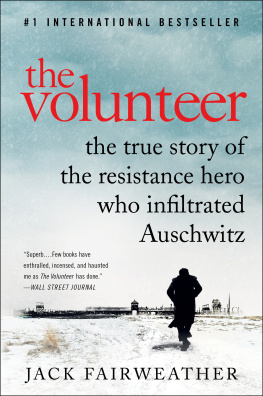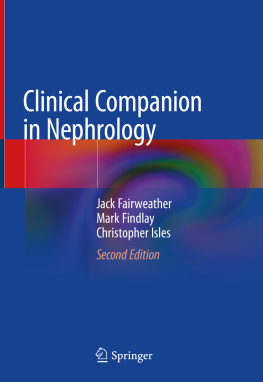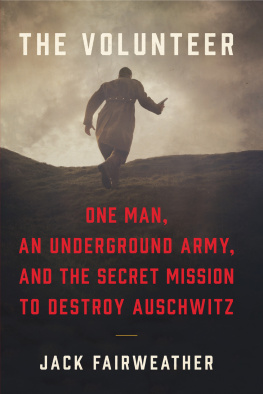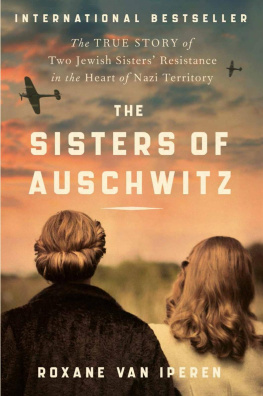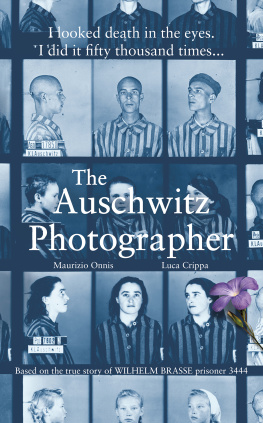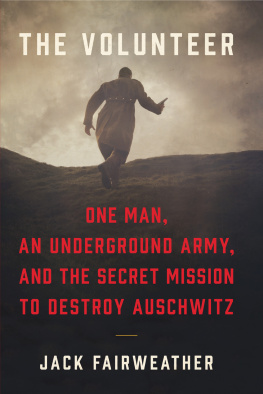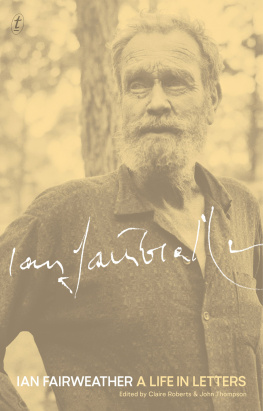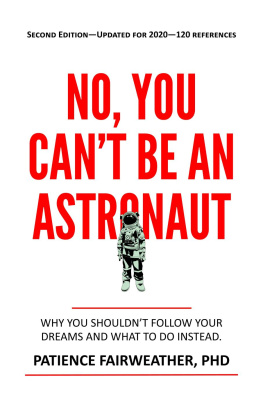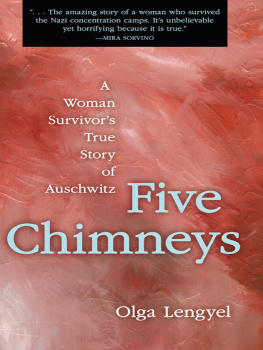Jack Fairweather - The Volunteer: The True Story of the Resistance Hero Who Infiltrated Auschwitz
Here you can read online Jack Fairweather - The Volunteer: The True Story of the Resistance Hero Who Infiltrated Auschwitz full text of the book (entire story) in english for free. Download pdf and epub, get meaning, cover and reviews about this ebook. publisher: HarperCollins, genre: Detective and thriller. Description of the work, (preface) as well as reviews are available. Best literature library LitArk.com created for fans of good reading and offers a wide selection of genres:
Romance novel
Science fiction
Adventure
Detective
Science
History
Home and family
Prose
Art
Politics
Computer
Non-fiction
Religion
Business
Children
Humor
Choose a favorite category and find really read worthwhile books. Enjoy immersion in the world of imagination, feel the emotions of the characters or learn something new for yourself, make an fascinating discovery.
- Book:The Volunteer: The True Story of the Resistance Hero Who Infiltrated Auschwitz
- Author:
- Publisher:HarperCollins
- Genre:
- Rating:4 / 5
- Favourites:Add to favourites
- Your mark:
- 80
- 1
- 2
- 3
- 4
- 5
The Volunteer: The True Story of the Resistance Hero Who Infiltrated Auschwitz: summary, description and annotation
We offer to read an annotation, description, summary or preface (depends on what the author of the book "The Volunteer: The True Story of the Resistance Hero Who Infiltrated Auschwitz" wrote himself). If you haven't found the necessary information about the book — write in the comments, we will try to find it.
The Volunteer: The True Story of the Resistance Hero Who Infiltrated Auschwitz — read online for free the complete book (whole text) full work
Below is the text of the book, divided by pages. System saving the place of the last page read, allows you to conveniently read the book "The Volunteer: The True Story of the Resistance Hero Who Infiltrated Auschwitz" online for free, without having to search again every time where you left off. Put a bookmark, and you can go to the page where you finished reading at any time.
Font size:
Interval:
Bookmark:
To Philip and Lynn Asquith for their support,
and to my grandparents Stella and Frank Ford
Whoever loves much, does much. Whoever does a thing well does much. And he does well who serves the common community before his own interests.
Thomas Kempis
Contents
Witold Pilecki volunteered to be imprisoned in Auschwitz . This barest outline of a story sent me on a five-year quest to retrace his footsteps from gentleman farmer to cavalry officer facing the Blitzkrieg to underground operative in Warsaw and then human chattel in a camp-bound cattle car. Ive come to know Witold well. Yet I find myself returning to that simple sentence and the moment he sat waiting for the Germans to burst into his apartment as I reflect on what his story promises to tell us of our own time.
I first heard about Witolds story from my friend Matt McAllester at a dinner in Long Island in the fall of 2011. Matt and I had reported together on the wars in the Middle East, and were struggling to make sense of what wed witnessed. In typically bravura fashion Matt had traveled to Auschwitz to confront historys greatest evil and learned of Witolds band of resistance fighters inside the camp. The idea of a few souls standing up to the Nazis comforted us both that night. But I was equally struck by how little was known about Witolds mission to warn the West of the Nazis crimes and create an underground army to destroy the camp.
Some of the pictures were filled in a year later when Witolds longest report about the camp was translated into English. The story of the reports emergence was remarkable in itself. A Polish historian named Jzef Garliski gained access to the document in the 1960s, only to discover that Witold had written all the names in code. Garliski managed to decipher large portions of it through guesswork and interviews with survivors to publish the first history of the resistance movement inside the camp. Then in 1991, Adam Cyra, a scholar at the Auschwitz-Birkenau State Museum, discovered Witolds unpublished memoir, a second report, and other fragmentary writings that had been locked away in Polands archives since 1948. This material came with Witolds key to identifying his coconspirators.
The report I read in 2012 showed Witold to be an exacting chronicler of his experience in Auschwitz who wrote in raw and urgent prose. But it was only a fragmentary and sometimes distorted account. He didnt record critical episodes for fear of exposing his colleagues to arrest, hid devastating observations, and carefully framed events to suit his military audience. Many questions remained, none more critical and elusive than this: What became of the intelligence he risked his life to gather in Auschwitz? Did he provide the British and Americans with information about the Holocaust long before they publicly recognized the camps role? Was his reporting suppressed? How many lives could have been saved had his warnings been heeded?
Students of the Holocaust quickly learn that it is a story not only of millions of innocent Europeans being murdered but of a collective failure to recognize and act on its horror. Allied officials struggled to discern the truth, and when confronted with the reality they stopped short of the moral leap necessary for action. But this wasnt only a political failure. The prisoners of Auschwitz also struggled to imagine the scope of the Holocaust as the Germans transformed the camp from a brutal prison to a death factory. They too succumbed to the human impulse to ignore or rationalize or dismiss the mass murders as separate from their own struggle. Yet Witold did not. Instead he staked his life on bringing the camps horror to light.
I have tried in this book to understand what qualities set him apart. But as I uncovered more of his writings and met those who knew him and, in a few cases, fought beside him, I realized that perhaps the most remarkable fact about Witold Pileckithis farmer and father of two in his late thirties with no great record of service or pietyis that he was not so different from you and me. This recognition brought a new question into focus: How did this average man expand his moral capacity to piece together, name, and act on the Nazis greatest crimes when others looked away?
I offer his story here as a provocative new chapter in the history of the mass murder of the Jews and as an account of why someone might risk everything to help his fellow man.
Charlotte, 2019
This is a work of nonfiction. Each quotation and detail has been taken from a primary source, testimony, memoir, or interview. The majority of the two-thousand-plus primary sources this book is based on are in Polish and German. All translations were carried out by my brilliant researchers, Marta Goljan, Katarzyna Chiyska, Luiza Walczuk, and Ingrid Pufahl, unless otherwise stated.
There are two established sources for understanding Witolds life in the camp: the report he compiled in Warsaw between October 1943 and June 1944, and a memoir written in Italy in the summer and fall of 1945. Remarkably few mistakes crept into his accounts given the circumstances under which he wrote, on the run and without access to notes. But Witold is not a perfect narrator. Wherever possible I have tried to corroborate his writings, correct errors, and fill in the blanks. The Auschwitz-Birkenau State Museum has 3,727 prisoner accounts, including two dozen that describe Witolds activities and hundreds more recording events he witnessed. Other archives with important details and context include Archiwum Akt Nowych, Archiwum Narodowe w Krakowie, Centralne Archiwum Wojskowe, Instytut Pamici Narodowej, the Ossolineum, the British Library, the Polish Institute and Sikorski Museum, the Polish Underground Movement Study Trust, the Chronicle of Terror Archives at the Witold Pilecki Institute, the National Archives in Kew, the Wiener Library, the Imperial War Museum, the National Archives in Washington, D.C., the United States Holocaust Memorial Museum, the FDR Presidential Library, the Hoover Institution, the Yad Vashem Archives, the Central Zionist Archives, the German Federal Archives in Koblenz and Berlin, the Swiss Federal Archives, the Archivum Helveto-Polonicum Foundation, and the International Committee of the Red Cross Archives.
Over the course of research, I have also had access to the Pilecki family papers, and unearthed letters and memoirs kept by the families of his close collaborators that shed light on his decisions. Incredibly, several of those whom Witold fought alongside were alive when I began research and offered their reflections.
I have been guided in writing by Witolds own rule for describing the camp: Nothing should be overdone; even the smallest fib would profane the memory of those fine people who lost their lives there. It has not always been possible to find multiple sources for some scenes, which is reflected in the endnotes. At other times, I have included camp details that its clear Witold would have witnessed but does not mention in his reports. I cite sources in the endnotes in the order in which they appear in each paragraph. When quoting conversations, I note the source of each speaker once. In the case of conflicting accounts, I have given Witolds writings primacy unless otherwise stated.
Polish names are wonderful and sometimes daunting for an English speaker to read. I have used first names or diminutives for Witold and his inner circle, which also reflects how they spoke to one another. I have also tried to cut down on the use of acronyms, and hence refer, for example, to the main resistance group in Warsaw as the underground. For place-names I have retained prewar usage. I use the name Owicim for the town, and Auschwitz for the camp.
KRUPA, EASTERN POLAND
AUGUST 26, 1939
Witold stood on the manor house steps and watched the car kick up a trail of dust as it drove down the lime tree avenue toward the yard and came to a stop in a white cloud beside the gnarled chestnut. The summer had been so dry that the peasants talked about pouring water on the grave of a drowned man, or harnessing a maiden to the plow to make it rainsuch were the customs of the Kresy, Polands eastern borderlands. A vast electrical storm had finally come only to flatten what was left of the harvest and lift the storks nests off their posts. But that August Witold wasnt worrying about grain for the winter.
Next pageFont size:
Interval:
Bookmark:
Similar books «The Volunteer: The True Story of the Resistance Hero Who Infiltrated Auschwitz»
Look at similar books to The Volunteer: The True Story of the Resistance Hero Who Infiltrated Auschwitz. We have selected literature similar in name and meaning in the hope of providing readers with more options to find new, interesting, not yet read works.
Discussion, reviews of the book The Volunteer: The True Story of the Resistance Hero Who Infiltrated Auschwitz and just readers' own opinions. Leave your comments, write what you think about the work, its meaning or the main characters. Specify what exactly you liked and what you didn't like, and why you think so.

